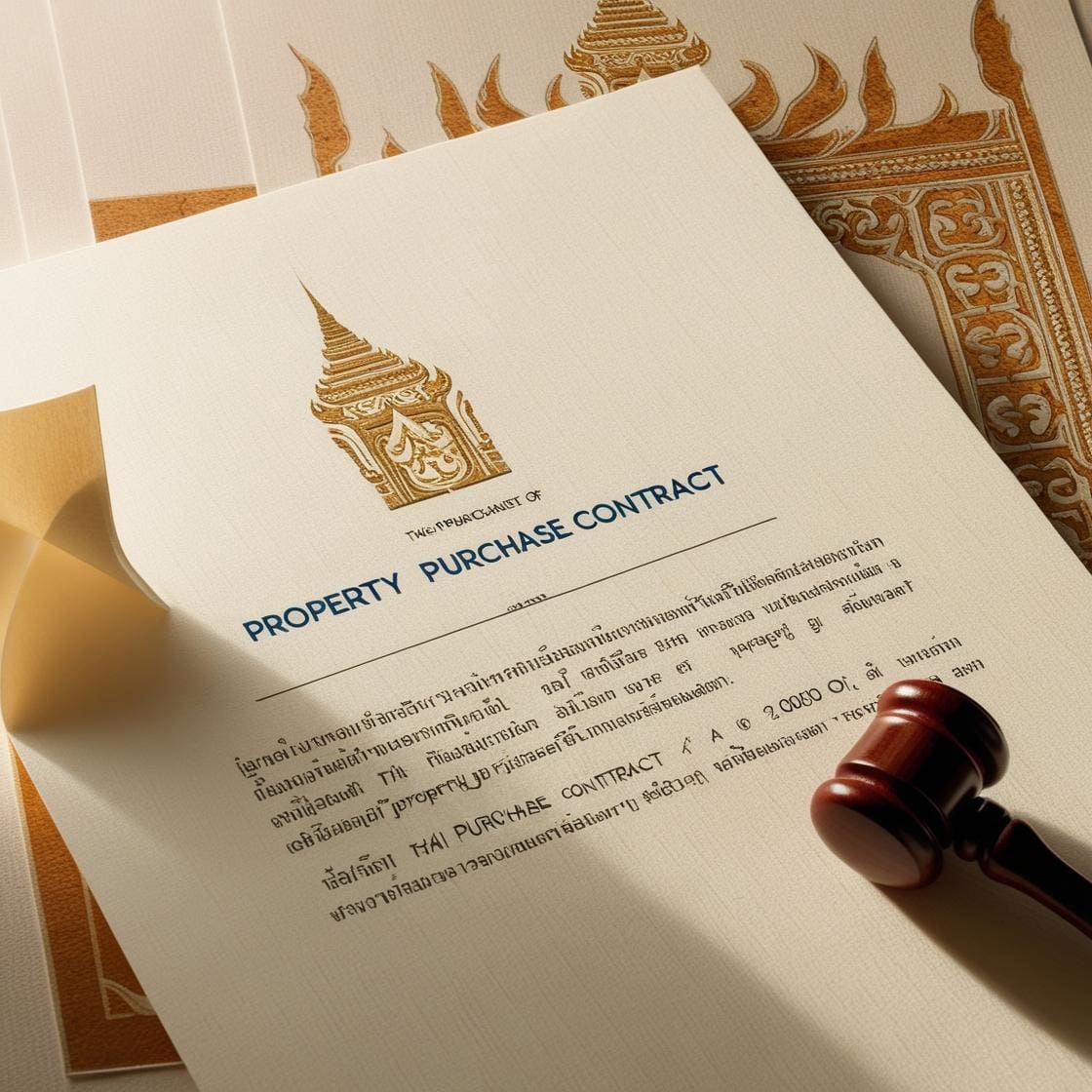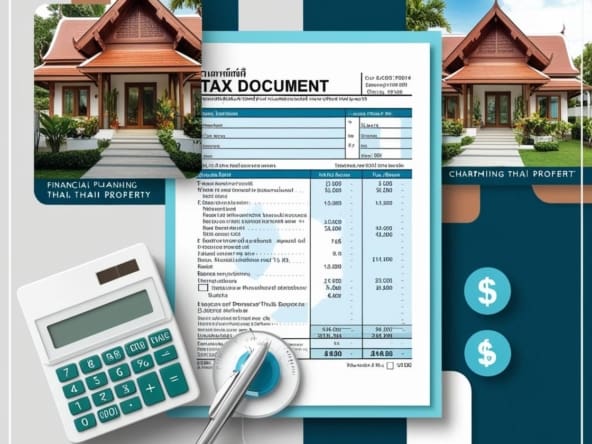Thailand’s picturesque beaches, vibrant cities, and rich culture make it a popular destination for expatriates and foreign investors. However, navigating the legal landscape of buying property in Thailand can be complex, particularly for those who are not familiar with the country’s regulations. This comprehensive guide aims to break down the key aspects of Thai property laws for foreign buyers and provide essential legal considerations to help you make informed decisions.
1. Overview of Thai Property Ownership
Foreigners can legally own property in Thailand, but there are important restrictions and guidelines to follow. Understanding these regulations is crucial to ensure a smooth purchasing process.
1.1 Types of Property Ownership
In Thailand, several types of property ownership exist, each with different legal implications:
- Freehold Ownership: This type allows full ownership of the property and land. However, foreigners can only own freehold property in the form of condominiums, limited to 49% of the total area of the building. According to the Bank of Thailand, as of 2021, foreign ownership of condominiums was approximately 30% across the country, demonstrating strong interest in this investment type.
- Leasehold Ownership: Foreigners can lease land for up to 30 years, with the possibility of extending the lease for an additional 30 years. This arrangement is common for those wanting to build a home on land without purchasing it outright. The long leasehold structure provides security for foreign investors, especially in areas where freehold ownership is not an option.
- Condominium Ownership: Foreign buyers can own up to 49% of the total area in a condominium project. This is often the most straightforward option for foreign investors. The Thai real estate market has seen a surge in condominium developments, particularly in urban centers like Bangkok, where high demand exists due to the growing expatriate population.
- Thai Company Ownership: Some foreigners opt to set up a Thai company to purchase land. This allows 100% foreign ownership, but it requires compliance with specific regulations. According to the Department of Business Development, there were approximately 800,000 registered companies in Thailand, a significant number of which are foreign-owned.
2. Foreign Ownership Restrictions
Understanding the restrictions on foreign ownership is essential for prospective buyers.
2.1 Condominium Ownership
Foreign ownership of condominiums is relatively simple but subject to specific limits. According to Thai law, foreigners can own up to 49% of the total floor area of a condominium. As of 2022, the Thai Real Estate Association reported that about 70% of new condominium sales were targeted at foreign buyers, highlighting the appeal of this ownership model. It is essential to confirm the ownership ratio before purchasing to avoid legal complications.
2.2 Land Ownership
Foreigners are not permitted to own land outright. However, there are alternative ways to invest in land:
- Long-Term Leases: Foreigners can lease land for up to 30 years, with an option to renew. This type of lease is often used by those looking to build homes or commercial properties. A well-drafted lease agreement is vital to protect your interests, ensuring renewal options are included.
- Setting Up a Company: Foreigners can establish a Thai company to own land. This route requires careful structuring to meet local regulations, including having at least three Thai shareholders. In recent years, the Thai government has encouraged foreign investment, making this option more attractive for those looking to establish a business presence in the country.
2.3 Investment in Property
Investors looking to buy property for rental purposes must also be aware of local regulations, including zoning laws and business licenses. In popular tourist areas, such as Phuket and Pattaya, short-term rental regulations have become increasingly strict, necessitating compliance with local laws to avoid penalties. For example, as of 2023, some districts in Phuket have implemented a minimum rental period to control short-term rental activity.
3. The Legal Framework Governing Property Purchases
3.1 Thai Civil and Commercial Code
The Thai Civil and Commercial Code governs property transactions in Thailand. Key articles related to property ownership include provisions on contracts, leases, and property rights. Understanding these laws is crucial for ensuring your property purchase is legally sound. The code outlines the responsibilities of buyers and sellers, protecting both parties in a transaction.
3.2 Land Code
The Land Code outlines the regulations governing land ownership and transactions. Key points include:
- The requirement for land registration at the Land Office, which helps prevent disputes over land ownership.
- Procedures for transferring ownership, which must be done in person at the Land Office.
- Zoning regulations that dictate how land can be used, affecting potential development plans.
As of 2021, Thailand had over 25 million registered land parcels, reflecting the country’s extensive real estate landscape. Understanding zoning laws is critical, as these regulations can impact property use and future developments.
3.3 Foreign Business Act
The Foreign Business Act regulates foreign ownership of businesses in Thailand, which can impact property purchases made through a Thai company. Familiarity with this act is important for those considering this route. Under the act, foreign companies are classified into three categories, with varying levels of restrictions.
4. The Purchase Process: Step-by-Step
Understanding the property purchase process in Thailand is crucial for foreign buyers. Here’s a detailed breakdown of the steps involved:
4.1 Finding a Property
Before making any offers, research different areas and property types. Engage a local real estate agent to help you navigate the market and find properties that meet your criteria. In 2023, the Bangkok Post reported that 60% of foreign buyers rely on real estate agents, emphasizing the importance of local expertise.
4.2 Making an Offer
Once you identify a property you’re interested in, you can make a formal offer. This often involves a verbal negotiation, followed by a written offer. It’s common to negotiate terms such as payment schedules and included furnishings during this stage.
4.3 Signing the Sales and Purchase Agreement
Once the seller accepts your offer, both parties will sign a Sales and Purchase Agreement (SPA). This contract outlines the terms of the sale, including the purchase price, payment schedule, and any contingencies. A well-structured SPA can prevent disputes and clarify responsibilities.
4.4 Due Diligence
Conducting due diligence is essential before finalizing your purchase. Key steps include:
- Title Search: Verify the seller’s ownership and ensure the property is free from liens or encumbrances. According to the Land Department, there were over 10 million title deeds issued in Thailand, highlighting the importance of verifying legitimacy.
- Property Inspection: Hire professionals to inspect the property for structural issues and other concerns. In 2022, a survey indicated that 30% of property buyers reported issues discovered during inspections, underscoring the need for thorough evaluations.
- Legal Review: Engage a local lawyer to review all documents and contracts to ensure compliance with Thai laws. A lawyer can also assist in resolving any discrepancies that may arise during the process.
4.5 Payment and Transfer of Ownership
Once due diligence is complete, you can proceed with payment and ownership transfer at the local Land Office.
- Deposit: A deposit (usually 5-10% of the purchase price) is typically required to secure the property.
- Final Payment: The remaining balance is paid upon transfer of ownership.
- Transfer Fee and Taxes: Be prepared to pay a transfer fee, usually 2% of the property value, and any applicable taxes. As of 2023, the tax framework in Thailand has been simplified, but it’s still essential to budget for these costs.
4.6 Obtaining the Title Deed
After payment is made and the transfer is complete, the title deed will be issued in your name. It’s essential to keep this document safe, as it serves as proof of ownership. Approximately 90% of real estate disputes in Thailand arise from title issues, making the title deed vital for your legal standing.
5. Additional Legal Considerations
5.1 Taxes and Fees
Foreign buyers should be aware of the various taxes and fees associated with property purchases, including:
- Transfer Fee: Generally set at 2% of the property value, which is typically shared between the buyer and seller.
- Stamp Duty: 0.5% of the property value, applicable if the transfer fee is not paid.
- Withholding Tax: Based on the appraised value of the property or the sale price, whichever is higher. Foreigners selling property in Thailand may also be subject to a capital gains tax.
In 2022, the government introduced incentives for first-time homebuyers, including tax breaks and reduced fees, making it an advantageous time for investment.
5.2 Rental Regulations
If you plan to rent out your property, familiarize yourself with local rental regulations. Certain areas may have restrictions on short-term rentals. In popular tourist destinations, such as Chiang Mai and Pattaya, strict regulations govern short-term rentals, requiring registration and permits.
5.3 Property Management
For investors purchasing rental properties, consider hiring a property management company. These companies can handle tenant relations, maintenance, and compliance with local regulations. In 2023, the property management sector in Thailand was valued at approximately 15 billion baht, indicating strong demand for these services.
6. Common Pitfalls to Avoid
Navigating the Thai property market can be fraught with challenges. Here are some common pitfalls to avoid:
6.1 Ignoring Legal Advice
Many foreign buyers underestimate the importance of legal counsel. Engaging a knowledgeable lawyer can help you navigate the complexities of Thai property laws for foreign buyers and ensure compliance. Statistics show that over 40% of property disputes in Thailand stem from misunderstandings about legal obligations.
6.2 Failing to Conduct Due Diligence
Skipping due diligence can lead to costly mistakes. Always verify ownership, inspect the property, and ensure all documents are in order before proceeding. According to a recent survey, 35% of foreign buyers reported issues with their properties that could have been avoided with proper due diligence.
6.3 Not Understanding Ownership Restrictions
Misunderstanding foreign ownership restrictions can lead to complications down the line. Be sure to familiarize yourself with the rules governing property ownership in Thailand. This knowledge is crucial, as many buyers are unaware of the legal frameworks that dictate their purchasing power.
6.4 Neglecting to Verify Property Title
Ensure that the property title is legitimate and free of encumbrances. Conducting a thorough title search can prevent future disputes. As noted earlier, disputes over title issues account for a significant portion of real estate conflicts in Thailand.
Conclusion
Understanding Thai property laws for foreign buyers is essential for anyone looking to invest in Thailand’s vibrant real estate market. From navigating foreign ownership restrictions to ensuring compliance with local regulations, being well-informed can make a significant difference in your purchasing experience.
As you embark on this journey, remember to seek legal advice, conduct thorough due diligence, and remain aware of the various costs and regulations associated with property ownership in Thailand. With the right preparation and knowledge, you can confidently invest in one of the most beautiful and culturally rich countries in the world.



